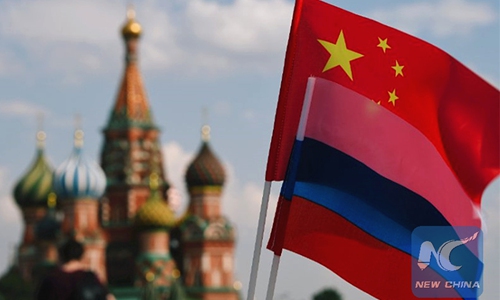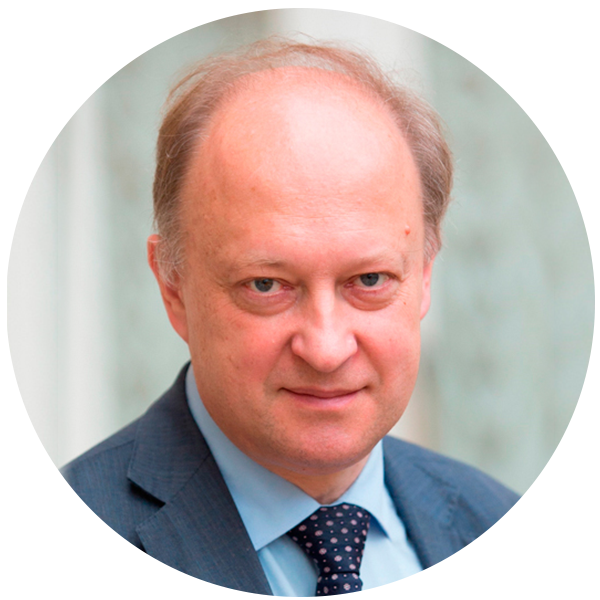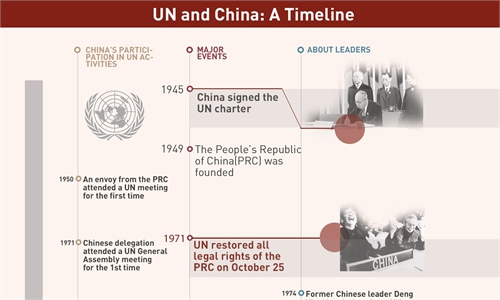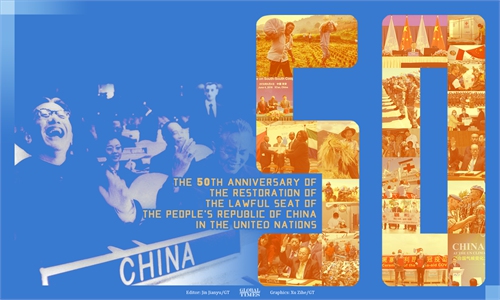
National flags of China and Russia are seen in the Red Square, Moscow, Russia. Photo: Xinhua
When it comes to reforms of the United Nations, it is indispensable for China and Russia, as long-time UN champions and supporters, to take the lead in promoting bottom-up approach to UN reforms. Moscow and Beijing have already accumulated a lot of experience in working together in drafting UN Security Council (UNSC) resolutions, in setting agendas for UN General Assemblies and in interacting with various groups of UN member states.When some talk about how to make the UN more efficient and more relevant in global politics, they usually focus on reforming the UNSC. There is no shortage of ideas and even detailed plans of how to expand the composition of UNSC and how to modify the veto power rules within the body.
It is hard to argue against the need to introduce changes to the UNSC's current mode of operations. And, the Council demonstrates difficulties to jointly approach some of the most devastating and dangerous conflicts faced by the world - be it in Africa, in the Middle East, in South Asia, in Latin American and in Europe and elsewhere.
However, the current international environment does not appear conducive to launching any far-reaching UNSC reforms today or tomorrow. An enlargement of UNSC would make the difficult task of reaching consensus in the United Nations Conference Building in New York City even more challenging; new permanent members would come with their own agendas, priorities and - alas! - with their prejudices and biases. The idea of a veto power abolition would undoubtedly meet fierce resistance from the P5 permanent group members.
Does this mean that one should put all the plans to enhance the United Nations on the back-burner? Not at all.
Contemplating an enhanced UN, one has to keep in mind that the United Nations is much bigger than its Security Council, all the importance of UNSC notwithstanding. Under the contemporary unfavorable circumstances, a bottom-up approach to the UN reforms might turn out to be more practical and more productive than a top-down approach. The United Nations is a graphic illustration of how the 20th century modernist institutional culture confronts the 21st century post-modernist international realities. The needed adjustment is huge, even without touching the Security Council for the time being.
There is an urgent need to provide for more targeted coordination among numerous UN agencies, in particular - to overcome the existing gap between the UN security agenda and its development agenda.
There is a clear necessity to produce a new set of KPIs for the vast UN bureaucracy, which is quite often too much focused on formal report writing. One should think about how the United Nations could make more use of the global civil society and independent expert knowledge. The United Nations should modernize and upgrade its peace-keeping capacity in view of the changing nature of modern conflicts and to move from mostly reactive to proactive approaches to conflicts. UN has to address in a more energetic and systematic ways pending problems of red-tape, bureaucratic duplication, excessive administrative costs and so on.
Some of these and many other institutional challenges confronting the UN have been articulated many times by critics of the organization. Sometimes, the latter used this criticism to cast doubts in the relevance of the United Nations in the 21st century.
The time has come to take a consolidated Russian-Chinese approach to modernizing the UN institutional culture and performance. It goes without saying that this work should not look as an exclusive undertaking of the two permanent members of UNSC, but should rather include as many other member states as possible.
Once this process is launched and gains momentum, it will be much easier to address more divisive issues - reforming the Secretariat, empowering the General Assembly and addressing the most difficult and controversial matter of the UN Security Council composition and the rights of its permanent members. By the time we get to this point, the accumulated track record of working together on less controversial matters should make it possible to find an appropriate arrangement for the Security Council as well.
The author is director general of the Russian International Affairs Council. opinion@globaltimes.com.cn



